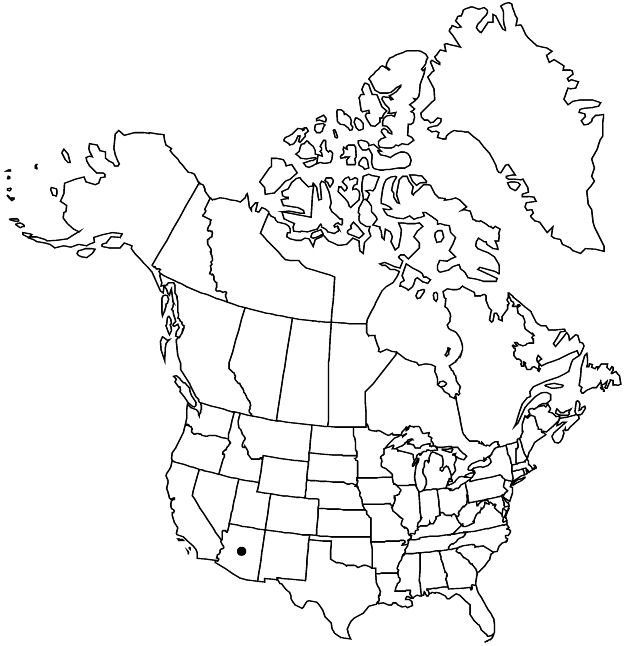Potentilla albiflora
Bull. Torrey Bot. Club 61: 260. 1934.
Short hairs not well differentiated from long hairs, absent or sparse throughout. Stems 0.2–1.5 dm. Basal leaves ternate, 1.5–10 cm; petiole 1–7 cm, long hairs ± abundant, spreading to ascending, 0.5–1 (–1.5) mm, weak to stiff, glands sparse to abundant; leaflets 3, central obovate, 0.5–2.5 (–3.5) × 0.4–1.3 (–2) cm, not to scarcely petiolulate, distal 1/2–2/3 of margins evenly incised ± 1/3 to midvein, teeth 3–5 (–6) per side, surfaces green, long hairs ± abundant, 0.5–1 mm, glands sparse to abundant. Inflorescences 1–5 (–10) -flowered. Pedicels 0.5–2 cm. Flowers: epicalyx bractlets lanceolate-elliptic, (1.5–) 2–3 (–5) × 0.5–1.5 mm; hypanthium 3.5–6 mm diam.; sepals 3–6 (–8) mm, apex acute; petals ± paler abaxially, bright-yellow adaxially, narrowly obcordate, (3–) 4–7 (–8) × 3–5 mm; filaments 2–4 mm, anthers 0.5–1 mm; carpels 10–25, styles 2–3 mm. Achenes 1.5 mm, smooth.
Phenology: Flowering May–Sep.
Habitat: Rocky slopes, open ground, in pine-oak and mixed conifer woodlands
Elevation: 1800–3200 m
Discussion
Of conservation concern.
Potentilla albiflora grows on the Pinaleño (Graham) Mountains in Graham County, with a few outlying collections known from the Mogollon Rim in Greenlee County and the Santa Catalina Mountains of Pima County.
Contrary to the specific epithet, petals of living plants are yellow, not white; like those of many Potentilla species, they tend to fade in pressed material.
Selected References
None.
Lower Taxa
"thin" is not a number."dm" is not declared as a valid unit of measurement for this property."-3(-5)timesbasalleaves" is not declared as a valid unit of measurement for this property."dm" is not declared as a valid unit of measurement for this property."dm" is not declared as a valid unit of measurement for this property.
